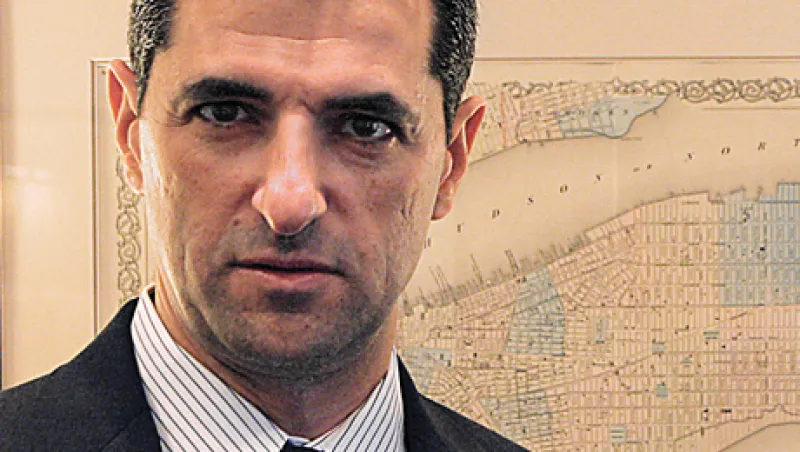The theory that technological innovation has streamlined the capital markets doesn’t fly too well with guys like Sal Arnuk and Joe Saluzzi. The two agency brokers, co-founders of Chatham, New Jersey–based Themis Trading, are self-described “old-school traders” who are so fed up with the effects of high frequency trading and predatory algorithms that they’re calling for the formation of an entirely new securities market. “If you try to drive a Chevy on an autobahn filled with Ferraris, you’re going to get run over,” Saluzzi says. “It’s better to find a highway filled with other Chevys.”
Saluzzi and Arnuk say they agree with the new stock market proposal from Grant Thornton’s David Weild, who has been arguing for a new, parallel market for companies under $2 billion in value. Weild says that the new market would allow issuers to choose the market option “that makes the most sense to them while other established markets continue to operate as they do today.” Finding enough liquidity providers won’t happen overnight either. But they’re convinced that plenty of institutional players, tired of navigating today’s order-driven market, would jump at the opportunity to trade in a quote-driven market. The new market would be reserved for “real-life traders,” says Saluzzi. “No more phantom liquidity or phantom spreads.”
High frequency trading accounts for as much as 70 percent of the volume on U.S. stock exchanges, a shift away from the trades by institutional investors that long dominated the markets. Saluzzi and Arnuk say that on any given day just 12 to 13 percent of trades come from institutions looking for long-term investments. The result, they say, is a U.S. equity market that is becoming more unpredictable by the day.
The two brokers predict that the “flash crash” of May 2010 is just the first of many cataclysmic events that will rock the markets. “Exchanges are the arms dealers supplying weapons like co-location facilities to high frequency traders, as well as data feeds to figure out who’s where and what they’re doing,” says Saluzzi. A new market, he explains, would help exchanges return to doing what they were originally designed to do: help companies raise capital and grow. “As it stands now, exchanges have become casinos where high frequency traders move chips around for a living,” he says.





